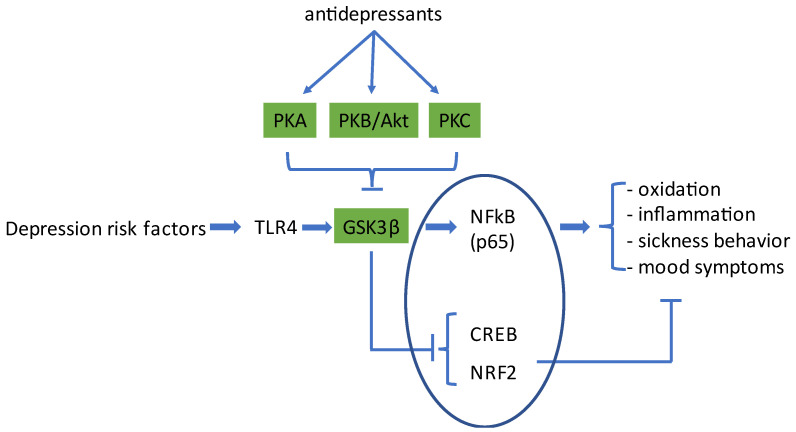Figure 1.
Schematic representation of the process by which risk factors for depression increase inflammatory and pro-oxidative processes in the brain and lead to physical and psychological symptoms of depressive disorder. Depression risk factors activate Toll-like receptor-4 (TLR4) on microglia cells, which causes activation of the kinase GSK3β and an increase in gene transcription by NFκB (p65/RelA). Antidepressant compounds, via activation of different members of the AGC protein-kinase family, including protein kinase A (PKA), PKB/Akt, and PKC, inhibit the enzyme activity of GSK3β. This, on the one hand, inhibits NFκB-signaling and, on the other hand, increases gene transcription by CREB and NRF2, two transcription factors that promote the transcription of neuroprotective, anti-inflammatory, and anti-oxidant proteins. This way, antidepressants neutralize the negative effects evoked by TLR4 activation. CREB: cyclic-AMP responsive element binding protein; NRF2: nuclear factor erythroid 2-related factor 2. The transcription factors are enclosed in an ellipse. For further details, the reader is referred to the text.

